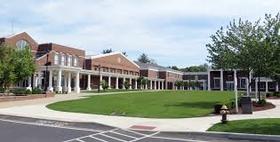The current economy's influence has permeated the educational realm much further than simple budget cuts. In fact, the community college curriculum may be permanently changed by today's economy.
A rising number of community colleges are shifting their traditional curriculum in order to face local job loss challenges. For example, Michigan's community colleges are changing their course offerings to retrain thousands of unemployed auto workers. Each community college campus is restructuring its curriculum to more accurately meet the needs of the local economy.
The Changes in Local Curriculum
From California to New York, community colleges are tailoring their comprehensive educational programs to more specialized, technical pathways. For example, Macomb Community College, located in Michigan, has seen its occupational therapy program grow tremendously, especially as local Michigan residents formerly employed by the auto industry look to redefine their skill set. Some of these curriculum changes are even spurred by government encouragement; at Stony Brook community college, the government subsidizes a project management program to help retrain unemployed individuals for the computer services industry.
According to Suffolk County Community College in Long Island, NY, "We are out in the trenches on a daily basis...doing everything we can to try to be ground zero of impacting change for individuals looking to get new skills." This sentiment is quickly spreading throughout the entire country's community colleges, which are working to meet the needs of today's economy.
Metropolitan Community College (MCC), located in Omaha, Nebraska, has recently made headlines with its innovative programs that specifically cater to local area employment opportunities. As the IT Jungle Newsletter reveals, MCC has established a new two-year program for Data Center Management. With this new forum, "MCC will have a program curriculum based on real-world working conditions in a modern data center that includes heterogeneous systems from numerous IT hardware and software vendors." With large companies such as Google, IBM, and Apple continuing to expand, the MCC>employment opportunities in Omaha.
This video offers a look at courses in the growing healthcare sector.
In an examination of Maine's community colleges, the Portland Press Herald reveals that these institutions are also quickly shifting their curriculum to embrace the current local economy. Instead of focusing on theoretical course offerings, these colleges have introduced more practical vocational programs. In fact, the entire Maine Community College System is launching more vocational class options, certifications, and degrees.
Highlighting the need for this shift, Maine's educational leaders assert, "In an era of tight budgets, the community college system can't pursue every possible program or provide its offerings on as many campuses as students would ideally like? These choices reflect good resource prioritization." By prioritizing more hands-on, practical, and professionally stable vocational options, college leaders are confident that their institutions can more effectively serve their student community and state economy.
The Maine Community College System has proposed many curriculum changes, including programs that train for in-demand careers, such as:
- Southern Maine Community College is now offering heavy-equipment operator training, allowing students to gain hands-on training and guidance from real industry experts.
- York County has introduced a recession-resistant criminal justice program to its curriculum.
- At Kennebec Valley Community College, a new autism program has been added to address increased autism diagnoses in its community. These classes will teach students how to pursue employment in the field of education, child care, or special needs services
These new course options specifically focus on alleviating Maine's employment struggles, and subsequently, community college leaders are hoping to attract a larger number of students who may not have considered attending courses on campus previously.
This video offers a look at some of the new courses you can find at your community college.
Career Preparation Classes
A rising number of community colleges are also creating specialized job search, interview, and professional development courses. For example, Howard Community College (HCC), located in Columbia, Maryland, provides its students with two completely free career information courses. The first HCC course, titled "Encore Careers," provides students with information about the current job market, economy, and competitive standards. Additionally, this class teaches students how to utilize resources and training in order to prepare for local-area jobs and employment opportunities. Building on this course, students can also take advantage of the "Resume Refresher" forum.
Other campuses, such as Manhattan Community College, are offering job search courses, helping those laid off from the finance industry look for other career paths.
Community colleges are quickly transforming their curriculum to meet today's economic demands. Whether you are unemployed or contemplating a career shift, your local community college may be the best foundation for a new career in your city.
Questions? Contact us on Facebook @communitycollegereview.















